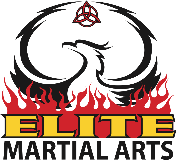Emotional intelligence (EI) plays a pivotal role in the practice and mastery of martial arts, extending far beyond physical techniques. It encompasses the ability to recognize and manage emotions—both your own and those of others—in order to enhance communication, resolve conflicts, and foster positive relationships. Developing EI not only improves your effectiveness as a martial artist but also enriches your overall experience within the martial arts school and beyond.
Self-Awareness: Recognizing Your Emotions
Self-awareness is the foundation of emotional intelligence. In martial arts, self-awareness involves recognizing and understanding your own emotions during training, sparring, and competition. By acknowledging feelings of excitement, frustration, or fear, you can better regulate your responses and make informed decisions. For example, becoming aware of nervousness before a belt test allows you to employ calming techniques and perform at your best.
Self-Management: Controlling Your Reactions
Effective martial artists exhibit strong self-management skills, maintaining composure and focus even under pressure. Through EI, you learn to regulate emotions such as anger or impatience that may arise during challenging drills or conflicts. This control not only improves your performance but also sets an example for others, promoting a positive training environment based on respect and discipline.
Empathy: Understanding Others’ Perspectives
Empathy is crucial in martial arts for building trust and camaraderie among practitioners. It involves understanding and sharing the feelings of training partners, instructors, and opponents. By empathizing with others’ challenges and victories, you cultivate supportive relationships and enhance teamwork during partner drills or group exercises. Empathetic martial artists offer encouragement, constructive feedback, and genuine camaraderie within the martial arts community.
Social Skills: Communicating Effectively
Effective communication is a hallmark of martial artists with high emotional intelligence. Clear and respectful communication fosters collaboration, prevents misunderstandings, and promotes a positive learning environment. Whether discussing techniques with a training partner or addressing concerns with an instructor, practicing assertiveness and active listening strengthens relationships and accelerates learning and growth.
Conflict Resolution: Handling Disagreements Constructively
Conflicts are inevitable in any martial arts setting, but EI equips you with skills to manage disagreements constructively. By remaining calm, listening actively, and seeking mutually beneficial solutions, you contribute to a harmonious school atmosphere where everyone feels valued and respected. Conflict resolution skills in martial arts extend beyond the mat, preparing you to navigate challenges in everyday life with resilience and diplomacy.
Integrating Emotional Intelligence into Training
Integrating emotional intelligence into your martial arts training involves continuous practice and reflection:
- Practice mindfulness: Stay present and aware of your emotions during training sessions.
- Seek feedback: Actively listen to feedback from instructors and peers to enhance self-awareness and improve performance.
- Support others: Offer encouragement and assistance to fellow practitioners, fostering a supportive and inclusive community.
Conclusion
Emotional intelligence is a cornerstone of successful martial arts practice, enhancing self-awareness, empathy, communication, and conflict resolution skills. By developing EI, martial artists not only improve their performance on the mat but also cultivate meaningful relationships and contribute positively to their school community. Embrace the journey of understanding yourself and others through emotional intelligence, and watch as your martial arts journey evolves into a fulfilling path of personal growth and mastery.

















